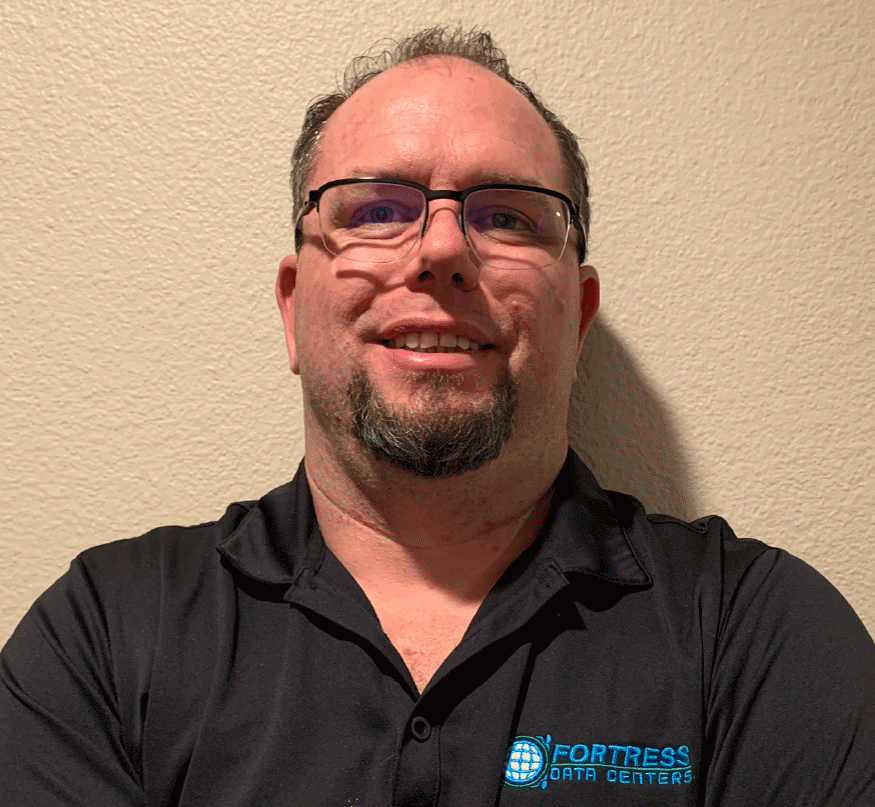
Have you ever needed a flashlight and the battery was dead? Most of us have experienced this frustration. Now consider what happens when all the batteries in a data center need to be maintained. As part of the critical infrastructure, you really, really need them. As the SVP, Information Systems and Design at Fortress Data Centers, Chuck Best pioneered the use of lithium ion batteries (LIB) in a data center environment because he recognized the critical-function improvement that they could provide. In contrast to more traditional lead-acid batteries, LIBs have proven to be more reliable for ensuring the data centers up time and sustainability.
At Fortress Data Centers, the common theme is to provide high levels of customer support, service and superior customer experience. Chuck is characteristic of the theme “We Are Here” because he attends to the details, plans for the future and is “Here” for the customer. Chuck brought the idea of changing from lead-acid batteries to CEO Jason Warner a couple of years before the movement to LIB in most data centers was mainstream. Initial cost is a factor, so a capital expenditure of this magnitude required more than a hunch and a belief. Chuck did his homework and Jason agreed to move forward based on the long-term ROI of replacing lead-acid batteries at the Fortress Data Center locations.

Information Systems and Design
Innovation of this type not only requires research; it requires courage and a focus on implementing while reducing risk over the course of the implementation and subsequent full integration. Some of the benefits that LIB provides include;
- Longer battery life – as all of us who drive cars know, lead-acid batteries need to be replaced. You just don’t want to be stuck in a remote location with a dead car battery. Right? Same in a data center. When the power goes out and the batteries are dead, or can’t carry the load your standing in the middle of a disaster of epic proportions.
- Recharge rates are extended – similar to battery life, you don’t have to recharge the batteries as often. Less cycling, longer life.
- Deeper discharge rates are not a problem and LIBs can handle many more cycles than traditional Lead Acid.
- Lighter than lead-acid for the power you get – bottom line, lighter is better. There is less weight to lug around and less structural support needed in the buildings.
- Smaller than lead-acid for the power – again, like weight, smaller is better. We can add more power for the equivalent footprint or reduce the space needed for the batteries.
- LIBs can perform better in higher temperature environments – heat is always a consideration but if failure happens with the cooling systems, LIBs won’t be at the risk level of non-performance compared to lead-acid batteries.
- Less drag on the environment: LIBs don’t require as many raw materials, are used for longer times so recycling time is better and as discussed, take less space and weigh less. All good for the environment.
But with all good things, there are naturally some questions and decisions to be made. When Chuck and Jason worked out a plan to replace lead-acid with LIBs, the fundamental aspect of cost had to be considered. Replacing all at once or over time was the primary consideration. They accelerated a replacement plan by looking at the batteries that were in the second half of their life cycle and swapped out those, followed by the rest over a reasonable period of time. For data centers that have a significant inventory of back-up batteries, coming up with a cost-rationalized plan that also meets the customer experience excellence desired will be critical. At Fortress Data Centers, the focus on improving the confidence of customers by not having power interruptions was a factor in accelerating the swap.
Innovation comes in large and small implementations. The guiding focus of Fortress Data Centers is on high levels of service, customer experience and confidence that stuff just works. Lithium ion batteries use are just one of the components of a data center that Chuck has pioneered and proven to success.